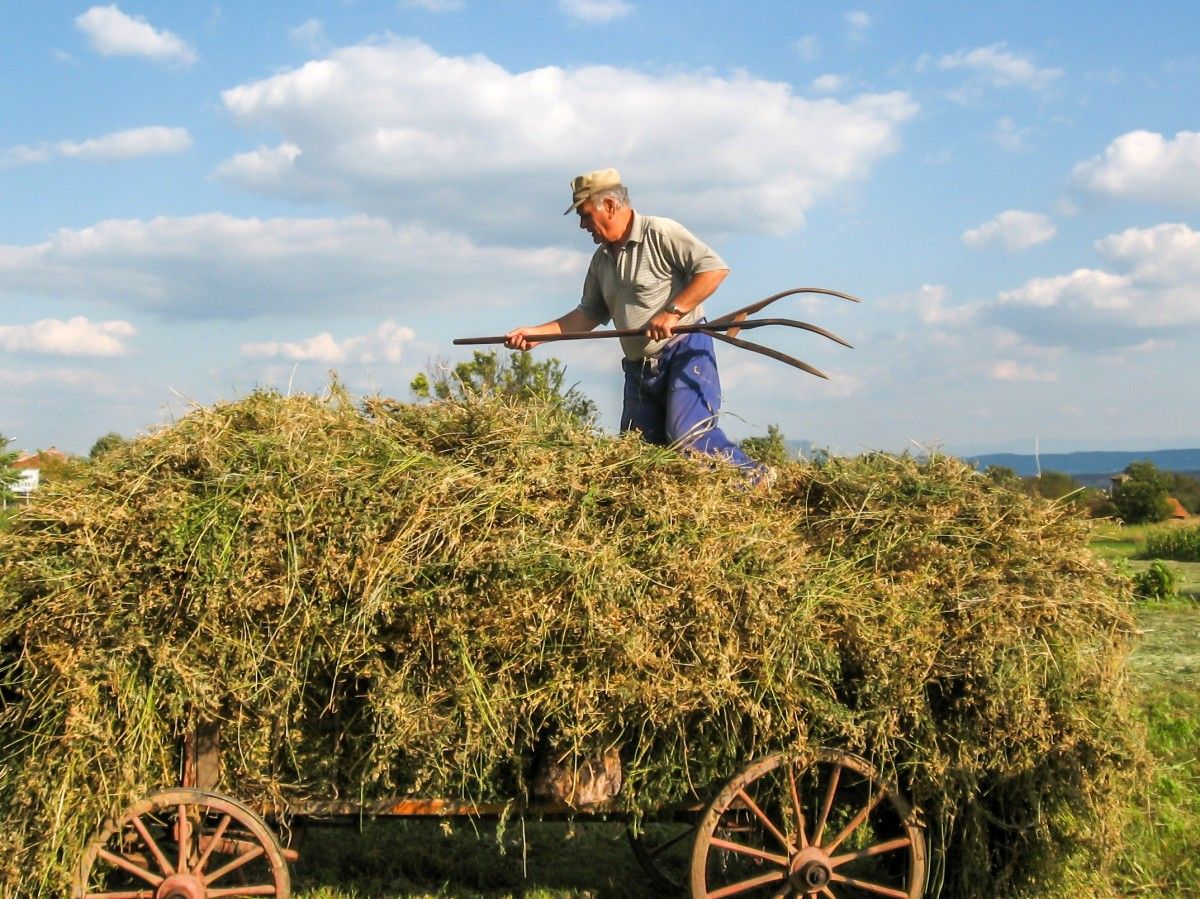
(Public domain)
“So I call it compounded stress, because there are many, many stressors,” says Dr. Robin Tutor-Marcom, Director of the North Carolina Agromedicine Institute. The organization, an inter-institutional partnership sanctioned by the University of North Carolina, works in the area of farm safety and health. She shares a long list -- farm finance, market volatility, family pressures and intergenerational farm transfer, crop yield, and regulatory pressures. “The stressors are endless,” she says. At the Agromedicine Institute, she does everything from helping farmers find health insurance plans to developing grain silo safety programs. But a decade ago, Dr. Marcom realized the Institute had a gap in its services.
“I had lunch with a farm woman who had suffered a fatality of a worker on her farm,” she says. “She looked across the table during lunch at me and she said, ‘You know that I believe in the work you do, that I understand the importance of farm safety and health. But if you don't do something about the stress that farmers and their families are under, then the other work that you do is not going to mean anything.’ And so I made her a promise that day that we would work on farm stress, and try to do something about it.”
Marcom says working to develop services in this area has been difficult. “Farmers are very private people,” she says. “And we don't believe in talking about stress, anxiety, depression, substance abuse, [or] alcoholism, we keep all those things inside.” But despite these challenges, the Institute has found a niche, developing a peer support program called Farmer to Farmer. Interested farmers sign up to be trained as a sort of peer counselor, and are matched with those who might need mental health or emotional support. To get involved, farmers take Mental Health First Aid and Talk Saves Lives suicide prevention courses, and participate in discussion groups about the subtleties of what struggle can look like out in the world. Meanwhile, nurses working at the Agromedicine Institute do intake to determine if the peer program is a good fit for farmers who request help. “They find out a little bit more about [the farmer’s] background,” Marcom says “And about what commodities they’re farming, about their family, if they have a faith community.” And then, it’s left up to the peer farmer and farmer seeking services to establish regular phone calls or visits.
Staff screen for mental health issues before and throughout the program to determine if a farmer might actually need crisis intervention or professional counseling. They also monitor to see if the peer match is continuing to be a good fit. Farmer to Farmer trains a variety of peer farmers, including men and women of all ages, from a number of commodity areas. “So a cattleman, a Christmas tree grower, a row crop farmer,” explains Marcom.
This kind of service where commonality or camaraderie is leveraged to improve public health isn’t exactly new. To develop Farmer to Farmer, Dr. Marcom consulted with a diabetes prevention peer support service based at UNC. But the stigma around emotional struggles - especially in a field like agriculture - makes Farmer to Farmer tricky to advertise. So participants often come to her in roundabout ways. “Because we have established those relationships over the years working on issues, people are more likely to reach out to us and say ‘You’ve helped me before, can you help me with this?’” she says. The most important quality the Agromedicine Institute looks for is a good listener who can honor privacy. “And [participants] don't want to be matched with another farmer who's in their own county, or maybe the county over,” says Marcom. “So, our matches so far have been on opposite ends of the state.”
Despite and because of distance, there’s something about the mirror-like quality of Farmer to Farmer that has made it stick. “We have one pairing and they have been able to meet, even though it's a very busy time of year for them, and have established consistent conversations,” Marcom says. “And our peer former is just excellent in that she's able to offer very simple, small things that the farmer that she's working with can do that are really making a difference for that farmer. Knowing that we have some matches that have established comfortable relationships, that's very important.”













